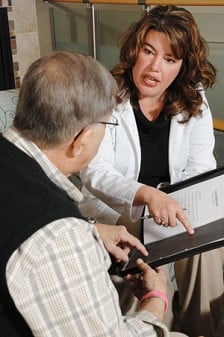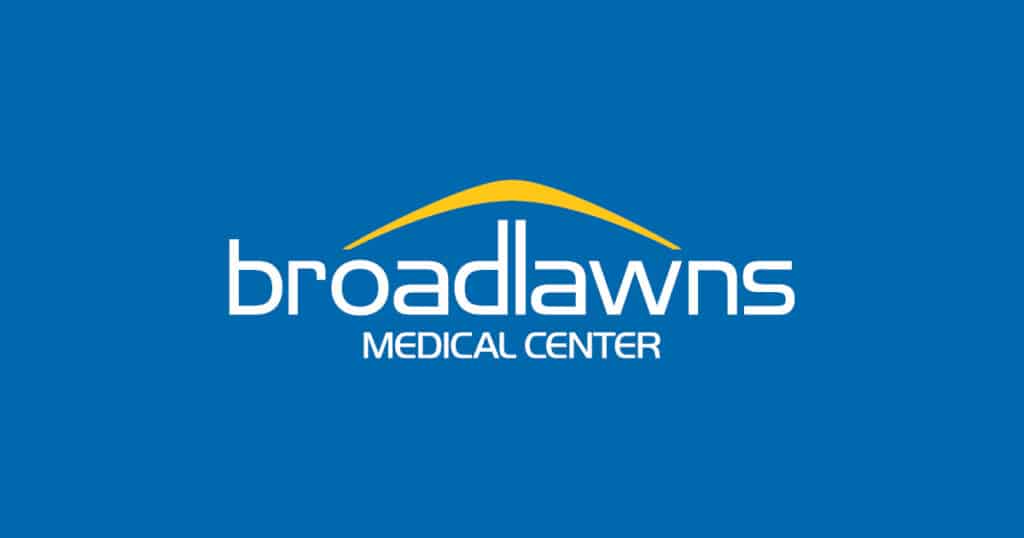Coaching better health at Mercy Clinics
Program establishes a national model for tracking follow-up care

A Mercy Clinics Inc. health coach program is gaining national attention.
The program, under development for the last 15 years, is an attempt to prevent patients with chronic conditions from experiencing a breakdown in their care that would result in repeated hospital admissions.
Mercy Clinics announced in April that it would collaborate with The Advisory Board Co., an international health-care research and technology services firm, to develop a physician office-based health coach (POHC) and medical home training program that the two organizations would market to health systems nationwide.
Since that time, the program has been featured in a trade publication and has expanded at Mercy Clinics, which has experienced a 400 percent return on investment within its own system by increasing the efficiency of visits to physicians’ offices.
And it is with no little pride that clinic personnel point out that the program preceded “Obamacare,”the moniker hung on health-care overhaul that is officially known as the Patient Protection and Affordable Care Act.
“We’ve been designing this and creating this as we go,” said Kelly Taylor, Mercy Clinics director of quality improvement. “We didn’t have a master plan when all of this began.”
One person taking advantage of the program is Gregg Lagan, a spokesman for Mercy Medical Center – Des Moines.
Lagan has been identified as being pre-diabetic. As a result, he attends classes on making lifestyle choices, such as diet, that could keep the condition at bay.
“If we can keep 85 percent of the people with chronic conditions out of the hospital, we can save trillions of dollars,” he said.
About 25,000 people identify Mercy Clinics physicians as their primary care providers.
Taylor said their records can be tracked by health coaches to make sure they keep up with medications and doctor visits. For example, a person with diabetes should have regular eye examinations. A Mercy Clinics health coach prompts patients to find out whether those exams have been scheduled.
Since linking up with The Advisory Council, Mercy Clinics has added coaches in neurology and pediatrics. It is assigning a cancer coach at Dallas County Hospital in Perry.
Mercy Clinics also is working to establish hospital coaches to make sure treatment regimens follow patients home.
The coaches go through an accreditation program that was developed by Mercy Clinics and taught at Des Moines University. Since 2008, more than 100 coaches in six states have received training under the program.
Mercy has 27 coaches who are assigned to patients that visit one of its 50 clinics in urban and rural areas of the state.
Each Mercy clinic has at least one health coach assigned to patients suffering from conditions such as obesity and high blood pressure.
“Ideally, we like to initiate the relationship face to face at the clinic,” Taylor said. “Otherwise a health coach might make a quick introduction and promise to get back with them by phone. One of the important things about the program is that it’s based on patient needs and wants. Patients don’t have to participate in the program; it might be that clinical goals don’t match with their goals as a person.”
Many people come into a Mercy clinic concerned about what ails them at the moment, rather than the underlying cause.
“When they are in the office, we’re not going to miss the opportunity to get them up to date,” Taylor said. “We might tell somebody that they need to start exercising. But does anybody ask a patient if that’s important to them? What are they motivated to do? Let’s break it down to what they can achieve. Are they confident about what they can achieve?”
She is quick to point out that the coaches are not specialists in a particular disease. Instead, they act as a link between a primary care physician and a specialist.
And you don’t even have to call them coaches.
“A lot of people had latched onto the ‘coach’ name, whether it’s lifestyle or wellness,” Taylor said. “We just kind of came up with it. We’re very into naming things and providing information that patients can understand. It really addressed the generality of this.”
The underpinning of the program is a disease registry that looks at all evidence-based standards of care, Taylor said.
“Diabetes, that’s the obvious one,” she said. “Have they had their lab work, a feet assessment, an eye check for diabetes issues? That’s all imbedded in the registry and we can find patients who are following up.”
Elements of the program seem to be reflected in that so-called Obamacare.
The new law establishes standards for reducing costs by strengthening the relationship between doctors and patients. (See box)
At Mercy Clinics, they’ve already been there.











